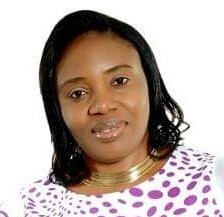on Residental Buildings
in Rivers State, Nigeria
FEATURED PAPER
By Irene Chinwe Efekalam, PhD
Department of Estate Management
Abia State University
Uturu, Nigeria
Abstract
As far back as mid 2016, Rivers State residents particularly those resident in Port Harcourt began noticing deposits of black soot in their homes, public places, on their clothings, cars, streets, plants and even on their bodies. Despite wide cries against it, the menace has continued unabated and in increasing densities and spread over the years except that the rains that last for a greater part of the year seem to reduce the deposit level of this soot apparently by washing some away. Several sources of black soot have been identified and include smoke generated from local, illegal refineries engaged in illegal production of diesel and kerosene, smoke from petrochemical industries, gas flaring from flow station of oil companies, smoke from industrial and domestic generators, smoke from exhaust of vehicles of all types, smoke generated from burning of vehicle tyres either at abbatoirs or for other purposes, smoke from burning of confisticated illegally refined petroleum products (though this act by the military has reduced as a result of widespread condemnation), smoke from fertliser companies and smoke generated from burning of solid waste in dumpsites located in and around Rivers State. Of all these sources, black soot genarated from the activities of local, illegal refineries have been identified to be the major culprit. This paper employed the use of e-questionnaires to elicit data from about 340 registered Estate Surveyors and Valuers resident or practicing in Rivers State. The data generated was subjected to further analysis using the one-way ANOVA to test the impact of soot in the City while F-ratio test was used to test for significance. The results revealed that black soot has significant impact on residential buildings in Port Harcourt. Amongst recommendations made were the need to immediately halt further illegal refining of crude, standardize local crude refining processes which must cover soot management and disposal systems before considering issuing of refining licenses to local refiners.
Keywords: Black Soot, Pollution, Residential Buildings, Illegal Crude Refining, Black Soot-Generation Activities
Historical Review of Black Soot Pollution in Rivers State
Soot is described as a deep black powdery or flaky substance consisting largely of amorphous carbon produced by the incomplete burning of crude oil, organic matter, fossil fuels and coal. It is said to contain a number of pollutants including acids, metals, soils and dust. According to the 2019 Rivers State Governments’s Report, black soot is the common term for a type of particle pollution called PM 2.5 – particulate matter with diameters that are 2.5micromters formed by the incomplete combustion of hydrocarbons and are capable of floating in the air for several months. Using air as its medium of movement, it moves about and settles on animate and inanimate objects and due to its tiny size, it can easily penetrate the lungs and bloodstreams of humans and animals. The US Environmental Protection Agency (EPA) describes black soot as one of the deadliest forms of air pollution.
Black soot deposits which began to be noticed in homes and surrounding environment in Rivers State in 2016 has become a serious environmental issue for not just the residents of the state but also for the country and international community. The soot first appears as clouds laden with dark particulate matters on the skyline in several parts of the state. But for their blackish nature and the fact that they are not characterized with cooler temperatures, these soot-laden clouds would have been mistaken for harmattan haze. This sight is easily noticed in the morning and evening hours and particularly, between the months of November and March when the rains subside. The menace of the soot is not discriminatory neither is it a respecter of persons and locations as its deposits and particles filter into homes and other closed areas just as it settles on cars, streets, water bodies, wetlands, plants and animals – there is virtually no safe place against soot in the state. This perhaps lays credence to the April 2018 ranking of Port Harcourt as the worst polluted city in the world with an air index of 188. Similarly, in December 2020, AirVisual ranked Port Harcourt as “very unhealthy” for sensitive groups having attained an air index of 207.817. In what appears to be a trend, AirVisual’s ranking of air quality in Port Harcourt for July, 2021 threw up an air index of 152 far above the standard (0-50) and moderate (51-100) levels. Currently, AirVisual Air Quality Index for Port Harcourt is 150 US AQI and classed as unhealthy for sensitive groups. It went further to state categorically that PM2.5 (Black Soot) is the major pollutant with concentration more than 10.7 times above the WHO annual air quality guideline value (Air Quality AirVisual, 2022).
More…
To read entire paper, click here
How to cite this paper: Efekalam, I.C. (2022). Black Soot Menace and its Impact on Residental Buildings in Rivers State, Nigeria; PM World Journal, Vol. XI, Issue II, February. Available online at https://pmworldlibrary.net/wp-content/uploads/2022/02/pmwj114-Feb2022-Efekalam-black-soot-menace-and-impact-on-residential-buildings-in-rivers-state.pdf
About the Author

Irene Chinwe Efekalam, PhD
Uturu, Nigeria
![]()
Irene Chinwe Efekalam holds a Doctor of Philosophy degree in Estate Management from Abia State University, Uturu where she also obtained her Masters’ and Bachelor of Science degrees in Estate Management. She has published several academic works including papers in both national and international journals. Her major research interests are on real estate appraisal and housing finance, provision and development based on which she has presented quite a number of conference papers. Irene is a Registered Estate Surveyor and Valuer and a member of the Nigerian Institution of Estate Surveyors and Valuers and the African Real Estate Society.
She currently lectures in the Department of Estate Management, Abia State University, Uturu and can be contacted through irene.efekalam@absu.edu.ng or icefekalam@yahoo.com









